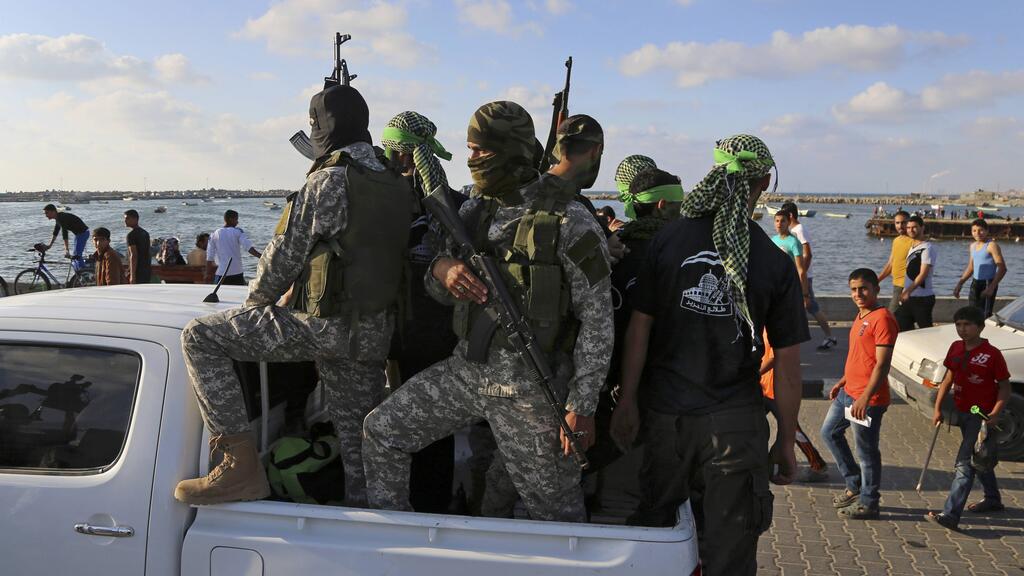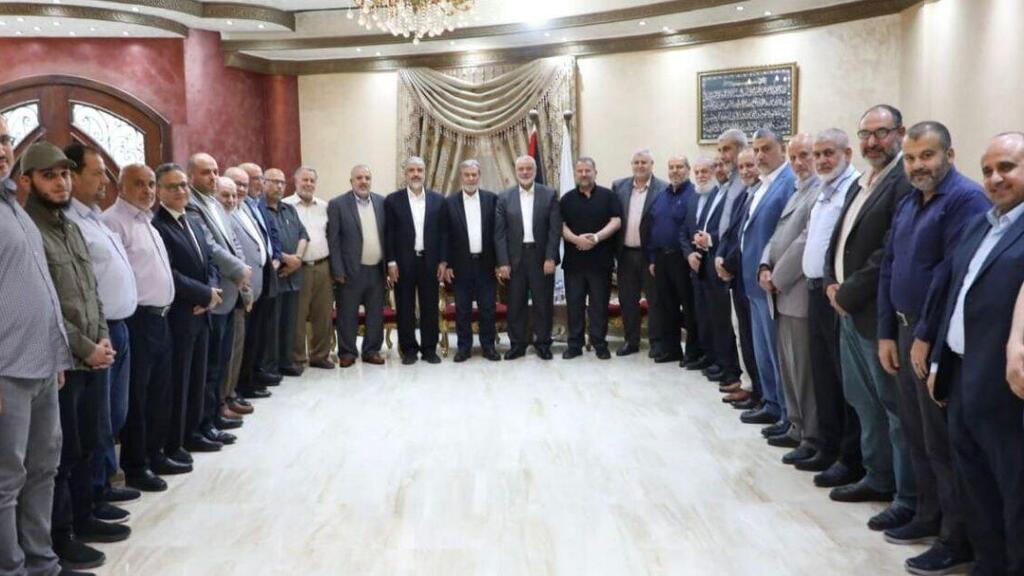[Gaza City] Israeli and Arab media outlets have reported that Egypt is leading intensive negotiations between Israel and the Palestinian movements in hopes of reaching a long-term truce. Cairo has yet to officially comment on the issue.
More stories:
Delegations from Palestinian Islamic Jihad (PIJ) and Hamas, the de facto ruling authority in Gaza, were both in Cairo this month discussing developments in the Palestinian arena.
Ebrahim Aldarawy, a Cairo-based journalist specializing in Palestinian affairs, told The Media Line that the meetings included discussions of Israeli attacks on Al-Aqsa Mosque and on the West Bank and Gaza; mistreatment of Palestinian prisoners; the reconciliation process between Hamas and Fatah, the ruling party of the Palestinian Authority; and the economic and humanitarian situation in Gaza.
He said that the most important goal of the meetings was taking steps toward a long-term truce between the Israeli and Palestinian sides.
The meetings were fruitful, Aldarawy said, with leaders from both Hamas and PIJ showing openness to Cairo’s proposals.
In separate statements, both Hamas and PIJ denied this claim.
Hamas spokesperson Hazem Qassem told The Media Line that the recent discussions in Cairo “did not include negotiating a long-term truce with the Israeli occupation authorities.” He said that the talks were part of ongoing discussions about the Egyptian role in alleviating the humanitarian crisis in Gaza and ways to curb Israeli aggression.
The Arabic-language news outlet Al-Khalij Al-Jadid quoted a high-ranking source who reported that the negotiations proposed expanding Egyptian trade with Gaza “through the establishment of a subsidiary port in Gaza under Egyptian supervision and management.” Egypt would also establish a highway linking Gaza to the Egyptian port city of Arish, which would connect Gaza to international markets, the source said.
3 View gallery


Ismail Haniyeh and the Hamas delegation meeting with Ziad Nachala and members of the Islamic Jihad in Cairo, Egypt
Palestinian political analyst Ibrahim Abrash told The Media Line that he doubts the accuracy of the report, given previously reported plans to establish various pieces of transportation and industry infrastructure that “inevitably” fell through.
“Every time we eventually don’t get anything,” he said. “It is only mere temptations to persuade the Palestinian parties and the Palestinian people to accept the conditional armistice.”
Abrash said that all Israel is willing to offer is allowing some minor infrastructure projects to be developed under the condition that Hamas maintains the peace. The only scenario in which Israel allows the development of something on the scale of an airport or seaport is “if Gaza is completely and finally separated from the West Bank and Jerusalem, and it is completely demilitarized and international forces [are] stationed [there],” Abrash said.
Gaza-based writer and political analyst Mansour Abukrayyem said that PIJ would be unwilling to meet the terms imposed by Israel in a long-term truce of this kind, namely “stopping all acts of Palestinian resistance.” Doing so “would mean removing Gaza completely from the equation of the Palestinian national conflict and isolating it from what is happening in the West Bank and Jerusalem,” he said.
Hamas, on the other hand, would be willing to accept Israel’s terms, Abukrayyem said. He described Hamas’ main concern as maintaining stability in Gaza and managing to stay in power.
Abukrayyem said that Israel has long sought to push Gaza toward Egypt and rid itself of the political and geographic burden posed by the territory. But Egypt is aware of the consequences of removing Gaza from the Palestinian national project, he said.
At the same time, Egypt has something to gain from developing closer ties with Gaza. Abukrayyem noted that Egypt sees Hamas as a threat to Egyptian national security given the group’s ties to the Muslim Brotherhood.
Egypt can benefit from a permanent and sustainable settlement of the Israeli- Palestinian conflict and the achievement of security and stability in the region, which contributes to strengthening Egyptian national security and prevents the spread of chaos and violence.
Aldarawy says there would be broad national security benefits to Egypt were the country to successfully serve as mediator between Gaza and Israel. “Egypt can benefit from a permanent and sustainable settlement of the Palestinian-Israeli conflict and the achievement of security and stability in the region, which contributes to strengthening Egyptian national security and prevents the spread of chaos and violence,” he said.
According to Abukrayyem, Egypt’s motivations for achieving a truce between Israel and Gaza have to do with the country’s economic self-interest as well. He said that Egypt hopes to gain access to the Gaza Marine natural gas field as part of the agreement with Israel and Gaza.
“Egypt is particularly interested in the issues of East Mediterranean gas, and it has been trying over the past years to become an important center for liquefying gas and exporting it to Europe, which will increase its strength in the Middle East and the Arab equation in general,” Abukrayyem said.
He noted that accessing the gas would require Palestinian consensus, the achievement of which would likely be possible only if Egypt becomes more involved in the Israeli-Palestinian conflict.



